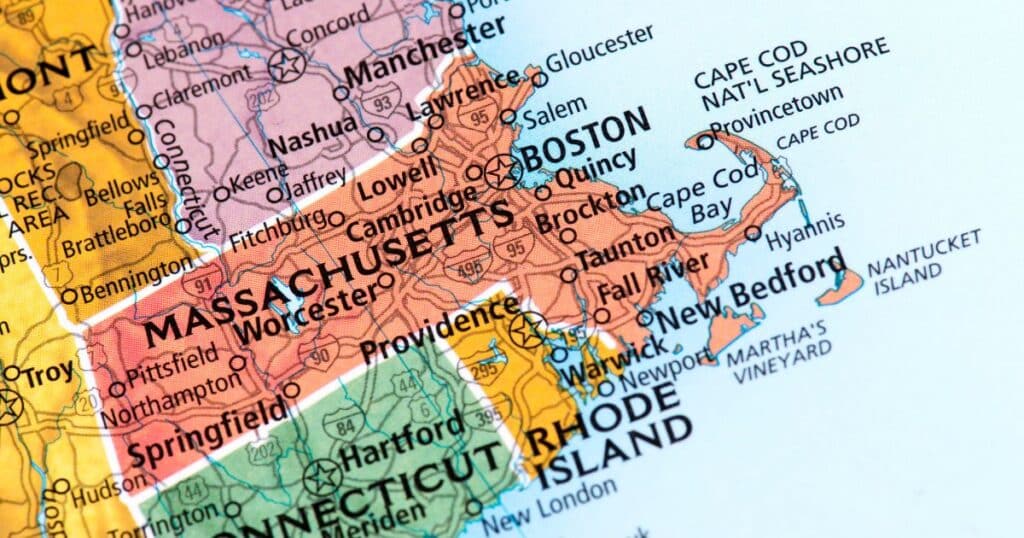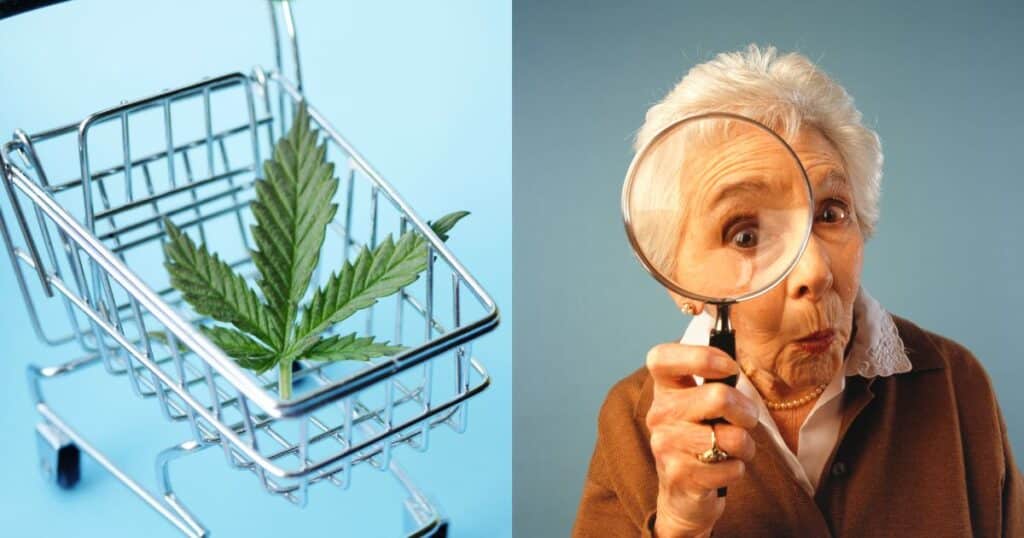For cannabis lovers, knowing the integrity of the product they’re consuming is everything. It is this innate trust in the potency and purity of regulated products that differentiates the legal market from the “illicit” market. Ironically, sometimes what’s in the packaging isn’t accurately what it claims to be. This discrepancy is why some state governments are turning to secret shopper programs to strike at the heart of deceitful practices in the burgeoning cannabis industry.
Of this growing movement of state cannabis programs, Massachusetts recently stands out for expanding its “secret shopper” program as a strategic maneuver to ensure cannabis companies comply with stringent packaging and labeling regulations. This initiative, spearheaded by the Massachusetts Cannabis Control Commission (CCC), aims not only to enforce legal standards but also to maintain consumer confidence in the integrity of the cannabis market.
Secret shopper programs are not novel ideas. The concept, widely used in industries such as retail and hospitality, is being adapted to weed out bad actors within the cannabis industry. Oklahoma, for instance, has launched a similar program. State regulators are targeting inflated testing results, as illustrated by California’s implementation of new SOPs for testing. This trend is evident as average THC potency is decreasing post-implementation.

Massachusetts’ Secret Shopper Program
Ava Callender Concepcion, the Acting Chair/Commissioner of Massachusetts Cannabis Control Commission (CCC), is unearthing Massachusetts’ compliance with packaging and labeling rules through what is playfully termed a “secret shopper program” as first reported by Green Market Report. This program is set to become an intrusive yet necessary aspect of the Commission’s operations. It will focus on product labeling accuracy, ensuring that what’s touted on cannabis packaging is verifiably present within.
“Testing is the thing that differentiates the regulated market from the unregulated market. The fact that people can go in as consumers and trust the product and know what they’re getting, that’s really important,” Concepcion said, during a conference this weekend.
The core of this program lies in the word ‘secret.’ Responsible for ensuring that the labeling and potency levels are accurately communicated to consumers, this covert operation hints at an intricate scheme in which state plant operatives disguise themselves as customers to investigate purchases and conduct compliance testing. The goal is simple—to maintain the authenticity of legal cannabis products while dishing out consequences for those who are not truthful about their products.
The details of this expansion are still under wraps, with the thrust of the program set to be unveiled at an upcoming public meeting.
“You can anticipate a conversation around the secret shopper program at an upcoming public meeting and the mechanics of that,” Concepcion said via Green Market Report. “I don’t want to say too much, because we have to work through the logistics, but there’s another component that will strengthen it. You can look for that component coming up.”
The intent is clear – Massachusetts’ cannabis companies will be under the microscope of the Cannabis Control Commission (CCC), with any violations liable to face repercussions. The program isn’t just a symbolic move; it’s a step forward to wipe out shady practices that undermine consumer trust at its core.
Oklahoma’s Foray Into Secret Shopping
Massachusetts isn’t the only state ramping up efforts to combat deceptive practices; Oklahoma has also enhanced its secret shopper program this year. House Bill 3971 paved the way for legalizing the use of secret shoppers as a regulatory tool for the medical marijuana industry. The state, with a focus on consumer safety, understood the imperative of such checks and balances.
The Oklahoma Medical Marijuana Authority (OMMA) plays a pivotal role in executing this program. It involves selecting a random sample of licensed dispensaries for undercover inspections, followed by lab testing to ensure compliance with safety and quality benchmarks. Initiated to address the subjective nature of lab tests that could be manipulated without proper oversight, this program is slated to inspect at least 10% of all dispensaries annually, post-2025.
State Regulators Taking This Seriously Now?
California’s journey with cannabis regulation has been like a rollercoaster ride, full of ups and downs. It’s not just Massachusetts cracking down on inflated numbers; California regulators are also stepping up. A significant recent change is a noticeable decrease in THC potency levels – quite a change from California’s usual ‘high’ standards. Recent studies reveal a 7% drop in average THC potency in the last three months, indicating a kind of market correction. What’s behind this big shift?
The answer lies in the state’s systematic attempts to minimize ‘lab shopping.’ Industry jargon for the practice of seeking out compliant labs that might provide inflated THC readings and lab shopping has been the Achilles heel of potency testing accuracy. California’s Department of Cannabis Control stepped in with Standard Operating Procedures (SOPs), mandating uniform testing methods to curb such manipulations.
The result is a market that is beginning to conform to legitimate testing standards without the appeal of artificially boosted potency levels. This trend, while jarring to some, is a welcome change for a state that has always prided itself on setting industry precedents. The new normal in California reflects a tamed industry that is learning to operate within the bounds of brand transparency and regulation.
Massachusetts and Beyond – Upholding Integrity in Cannabis
For cannabis enthusiasts, this emergence of stringent regulatory measures is a testament to the maturation of the legal cannabis sector. With states willing to invest in such programs, it is apparent that the industry is progressing towards a future where trust is not an expectation but an assurance. The era of secret shopper programs is not just about catching the culprits; it’s a statement that the legal cannabis industry is willing to police itself for the welfare of its consumers.
The growing acceptance of cannabis as both a recreational and medicinal substance, the significance of programs like secret shopping becomes clear. By weeding out inflated numbers and ensuring compliance with established standards, these initiatives uphold the integrity of the cannabis industry.

At the end of the day, whether one uses cannabis as a means to decompress after a long day with a joint or as a medical relief for chronic pain, the necessity for transparency cannot be overstated. Every consumer deserves to know exactly what is in their products, free from the distortion of inflated stats.
The implementation of secret shopper programs across states like Massachusetts and Oklahoma heralds a new era of accountability. It’s an approach to ensuring that the industry remains true to its promises, safeguarding the trust and health of consumers who view cannabis not just as a product but as a vital component of their wellness.
















